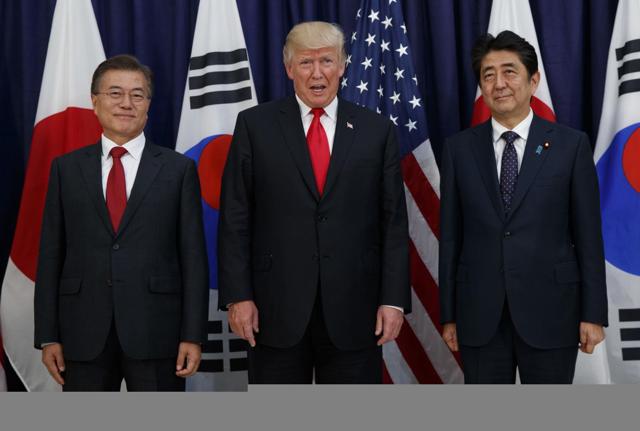Esteri
Us 2020, trade war helped South-East. But Trump takes away certainties from Asia

The American vote seen from the Asian continent. Trump effect on Japan and Korea. The benefits of the trade war for the Southeast: from confrontation to clash
Confrontation yes, clash no. Asia is preparing to witness, from a distance but not too much, the 2020 US presidential elections. And among the issues that can affect a preference for Donald Trump or Joe Biden is Washington's approach to China. A theme from which, between East Asia and Southeast Asia (or better Indo Pacific), one cannot escape. We have talked about it many times, on Affaritaliani: the Asian middle powers such as Japan and India and the countries of the Asean galaxy need to have a careful America about the rise of the Dragon, but not a White House asking to enlist in an ideological war. "I don't think there is a common position on what suits Southeast Asia in terms of American electoral results," says Valerio Bordonaro, director of the Italy-ASEAN Association. "Trump, in his second term, could significantly change the score compared to the first four years, and it is not certain that Biden will impose, in the event of victory, a decisive and timely reversal of American foreign policy".
ASIAN LATITANCE
After his victory in 2016, one of Trump's first actions as president was to withdraw from the trans-Pacific partnership, an investment agreement that brought together 12 countries between the Americas, the Pacific and East Asia, which also included Japan, Singapore, Vietnam, Malaysia and Brunei. At the time of the agreement, the pillar of Barack Obama's Pivot to Asia, the free trade area would have covered approximately 40 percent of global gross domestic product. Already in the election campaign against Hillary Clinton, however, Trump had judged the TPP as "dangerous" for American industry and promised that once elected he would block its ratification. And indeed he did, under the leadership of then White House strategist Steve Bannon.
A first blow to the stability of relations between the United States and East Asia. Not the only one. "In the region they do not forgive Trump for never having attended ASEAN summits and for not having appointed an ambassador to the secretariat in Jakarta," Bordonaro explains. On the other hand, the tycoon has proven to be allergic to international organizations and transnational associations. Just think of his destabilizing outings on NATO, his support for Brexit and the divisions within the European Union, his withdrawal from the World Health Organization in the midst of the Covid-19 pandemic. As well as reluctance to recognize the agreements that already exist, from the nuclear one with Iran to that on arms control with Russia. All for the principle of "don't get fooled".
TRADE WAR EFFECTS
Bordonaro, however, highlights some positive effects of the Trump presidency for Southeast Asian actors. "All the countries in the region have benefited from this first phase of the US-China trade confrontation, of which Trump was the main sponsor." The case of Vietnam is particularly evident (we talked about it here), which has attracted a significant number of production lines in the relocation phase to avoid duties (especially in textiles), as well as to reduce the sharply increasing labor costs in China. Despite the tariffs imposed by Washington on steel imports in 2018, in order to avoid the circumvention of anti-dumping rules by Chinese producers, in 2019 Vietnam grew by 7 percent and GDP is expected to rise again in 2020 2.8 percent off.
Singapore, on the other hand, is welcoming financial and banking actors leaving Hong Kong, after the Beijing national security law but also (or above all) after Trump's removal of the special status of the former British colony. Precisely the two countries, Vietnam and Singapore, which had carved out the role of mediation platforms in the two summits of the outgoing American president and the leader of North Korea, Kim Jong-un.
TOKYO AND SEOUL CONCERNS
As long as it was deluded that the US-China confrontation could remain commercial, the countries of Southeast Asia have therefore benefited from some advantages. More than the average powers such as Japan and South Korea, which have instead suffered above all two aspects of Trump's foreign policy: the unpredictability and the economic logic with which ties of a purely geopolitical nature and value have been interpreted.
This is the case of South Korea, a cornerstone of American strategy in East Asia since the postwar period and yet under Trump's sights for defensive spending. Not only. Trump did not bother to settle the differences between Tokyo and Seoul (which exploded in a commercial and diplomatic clash), providing an indirect assist to Beijing, which has become indispensable not only commercially but also diplomatically, in particular to Moon Jae-in on the knot of dialogue inter-Korean.
FROM CONFRONTATION TO CLASH
But the initial geopolitical inaction created internal oscillations, first of all in the Philippines, where also due to the peculiarity of President Rodrigo Duterte there was a clear approach to Beijing and the questioning of the presence of the American military on the territory of Manila.
The biggest problem, however, comes when the dispute with China has transcended the commercial sphere. As we explained in the analysis of Beijing and Taipei's approach to the American vote, the Asian partners are much more at ease in the suffused atmospheres of psychological drama and damn uncomfortable in the Trumpian "shooter" (figuratively, for now).
That is why, the countries of Southeast Asia did not get "enlisted" by Mike Pompeo on the South China Sea affair. While the regional medium powers such as Japan and India seem to be getting close to Washington's wishes, but in reality they are moving to constitute an Asian alternative to the Dragon that can do without a Big Brother that has become unpredictable, without saying yes to the hypothetical NATO asian.
Here, then, a second Trump presidency could suddenly become inconvenient from an economic point of view, due to the field choices to be made also on a commercial level (primarily technological), and dangerous from a geopolitical one, with the possible evolution from "confrontation" to " clash "that nobody in Asia wants. Biden, while unable to completely reverse the course, could try to strengthen international ties by proposing a less exclusive and more participatory vision.
A vision that would make international association such as ASEAN and the European Union breathe a sigh of relief. "From an Italian and European point of view, Biden's victory is to be hoped for," says Bordonaro, "which brings back to the various tables of multilateralism an important actor like the US, but downsized with respect to the relational and political capital that Obama benefited from, albeit the son of the unipolar delirium of Clinton and Bush. If Biden wins and decides to play the multipolar game and integrated diplomacy correctly, the EU and ASEAN will welcome him with open arms, along with many others".




